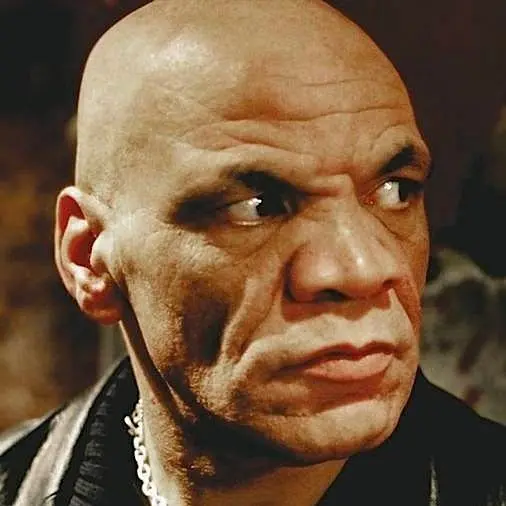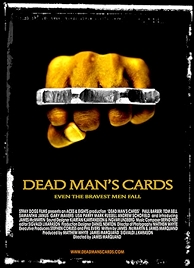There’s a grimy directness to the Liverpool gangster drama which substitutes Scouse sarcasm for the lairiness of the mockney geezer equivalent. Made by debut director James Marquand and starring its co-writer, James McMartin, it’s the story of a washed-up boxer with a low sperm count who takes a job as a bouncer, falls out with his wife (Samantha Janus), has a fling with a barmaid and gets on the wrong side of the local heavies, making friends with a fellow bouncer (Paul Barber) as he goes.
The “dead man’s cards” of the title are aces and eights, and they were the cards held by Wild Bill Hickok when he was shot in the back, or so says Billy the Cowboy (Tom Bell, in his final film role), owner of Billy’s Bar, the ropey boozer/club where Paul (Barber) and new boy Tom (McMartin) work the door. This overlay of a western ethos feels like a slightly desperate attempt to signal that this is a different kind of British crime drama. In fact it isn’t. It’s the familiar story of a new boy getting out of his depth and the old hand who introduces him (and us) to his new world.
However, no need for apologies – in its small details the film convinces us of its Liverpudlian credentials, such as the sign on a shop doorway that reads “No Kosavo’s, Thieves or Smackheads” (grammar all their own; apologies if I’ve mistranscribed), overtones of Alan Bleasdale, the king of the grim scally comedy (see the 1991 TV series GBH). Though for the most part it’s shooters, drugs, bare knuckle fighting, gangsters, pretty much the usual.
The acting is wildly variable, and it’s only when the superb Tom Bell’s mouth is operational that I felt I could completely settle back and go with the film. Dead Man’s Cards needs more actors of his calibre. Was it made in a rush? I don’t know, but Paul Barber’s line readings are so off that you wonder at times how he ever credibly held down a regular gig on a long-running soap (Brookside); he’s only periodically convincing as an ex-soldier with a few tours of Northern Ireland under his belt. In spite of this Barber (you might remember him from The Full Monty) has got a natural presence that also gives the film some bottom, allowing it to slide through on a shrug until it finally develops its own swing. This is in the final act, when Marquand and McMartin’s script starts, poker-style, to show its hand. Revealing a far more intelligent film than the acting and shaky set-up have led us all to expect.
Dead Man’s Cards – Watch it now at Amazon
I am an Amazon affiliate
© Steve Morrissey 2006

